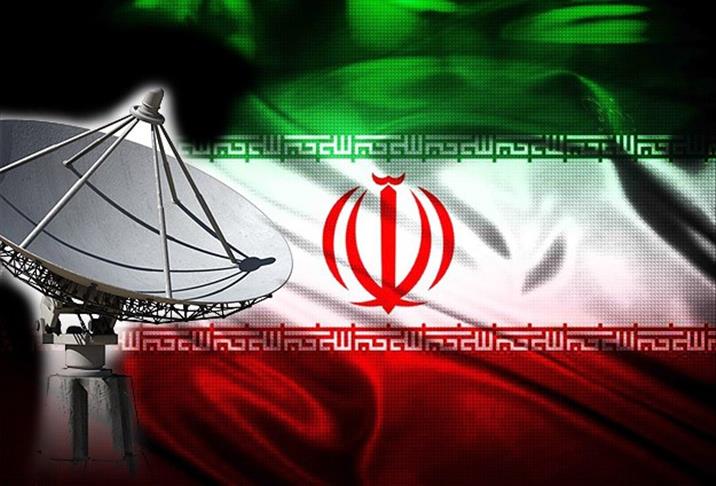
ISTANBUL
Iranian media is publishing news against Turkey and Turkish President Recep Tayyip Erdogan.
Moreover, it is not only creating a negative perception about top Turkish executives, but it is pursuing an agenda against Turkey's regional and international foreign policy.
The Iranian media is repeatedly making claims about Turkey's alleged help to terrorists in the Middle East, especially Daesh.
Iran's official news agency, Islamic Republic News Agency (IRNA), has given wide coverage to such baseless claims and charges against Turkey.
In an article published on July 26, 2015 in the newspaper "Aferinesh Daily", IRNA has defended the claim that Turkey is not allegedly engaged against Daesh seriously.
It has also claimed in the article that the Turkish government has allegedly given military assistance to Daesh secretly.
In an analysis, IRNA on July 27 has reported that Turkey has allegedly given space to Daesh in Syria. In another analysis about Turkey's cross-border operations, IRNA on July 28 has claimed that Turkey is allegedly supporting Daesh and only in recent days gave up its support that prompted Daesh to attack Turkish territory after the group got out of control.
Several other Iranian media organizations, including Fars News Agency, Tasnim News Agency and Press TV close to the Revolutionary Guards, are also playing important roles in creating a negative perception about Turkey.
Keyhan newspaper, backed by Iran's religious leader Ali Khamenei, is supporting such false news against Turkey.
The newspaper has said on June 25 in one of its headlines that Turkey, Saudi Arabia and Qatar are the alleged headquarters of Daesh.
Keyhan newspaper on July 25 has also said that Turkey has allegedly made an alliance with Daesh to topple the Syrian regime; moreover, it says Turkey has allegedly made a secret deal with Daesh so that Daesh would not supposedly carry out any terrorist attacks in Turkey.
The newspaper has also claimed that the alliance was broken only after the Suruc bomb attack in southeastern Turkey on July 20 that killed 32 people; it also went on to defend the lie that Turkish President Recep Tayyip Erdogan blocked aid to Kurdish people in the Syrian town of Kobani.
Fars News Agency, controlled by Revolutionary Guards, has said on July 25 that Daesh terrorists attacking Syrian town of Kobani went there allegedly via Turkey.
Moreover, Fars News Agency has said on July 27 that Daesh and Turkey allegedly have extensive economic ties, adding that the militant group is being armed by the Turkish government. The Agency published an interview with Khamenei's chief adviser Ali Akbar Velayati on August 1 in which Velayeti has alleged that Turkey supported terrorist organizations in the region.
Also, Turkey's cross-border operations against Daesh and the outlawed Kurdistan Workers' Party have annoyed the Iranian government. The Iranian media has alleged that Turkey has attacked Syrian territory "under color of terrorism”.
Meanwhile, IRNA's analysis on July 27 has said that Turkish airstrikes against PKK only allegedly made Daesh stronger.
Press TV - in an English broadcast on July 21 – also put blame on Turkish President Erdogan's daughter Sumeyye Erdogan for allegedly visiting Daesh militants in a hospital on the Syria border.
Even though the charges based on Canadian website "globalresearch.ca" have been denied strongly by the Turkish Presidency, Press TV has continued to publish the false charges on its website.
IRNA has also taken aim at Turkish Airlines and on February 6 it claimed that the airline is supporting militants in Yemen. "Turkish Airlines transported Yemeni terrorists fighting in Syria to Yemen," IRNA said in a report based on the claims of the Saba News Agency, which is under control of Houthis and which in turn is controlled by Tehran.
Moreover, Fars News Agency claimed on June 1 that eight alleged spies working for Turkish, Qatari and Saudi Arabian secret services have been caught in Sana'a, Yemen.
Iran has followed a strategy to spread false news as far as it can by using its own websites as references. Iranian media has been used as an instrument to incite anti-Turkey sentiments among people.
Turkish government has taken notice of Iranian media's government-supported defamatory campaign against them and relayed its regret to Tehran administration through several mechanisms; however, Iranian authorities have continued to ignore Turkey's warnings.
Anadolu Agency website contains only a portion of the news stories offered to subscribers in the AA News Broadcasting System (HAS), and in summarized form. Please contact us for subscription options.

